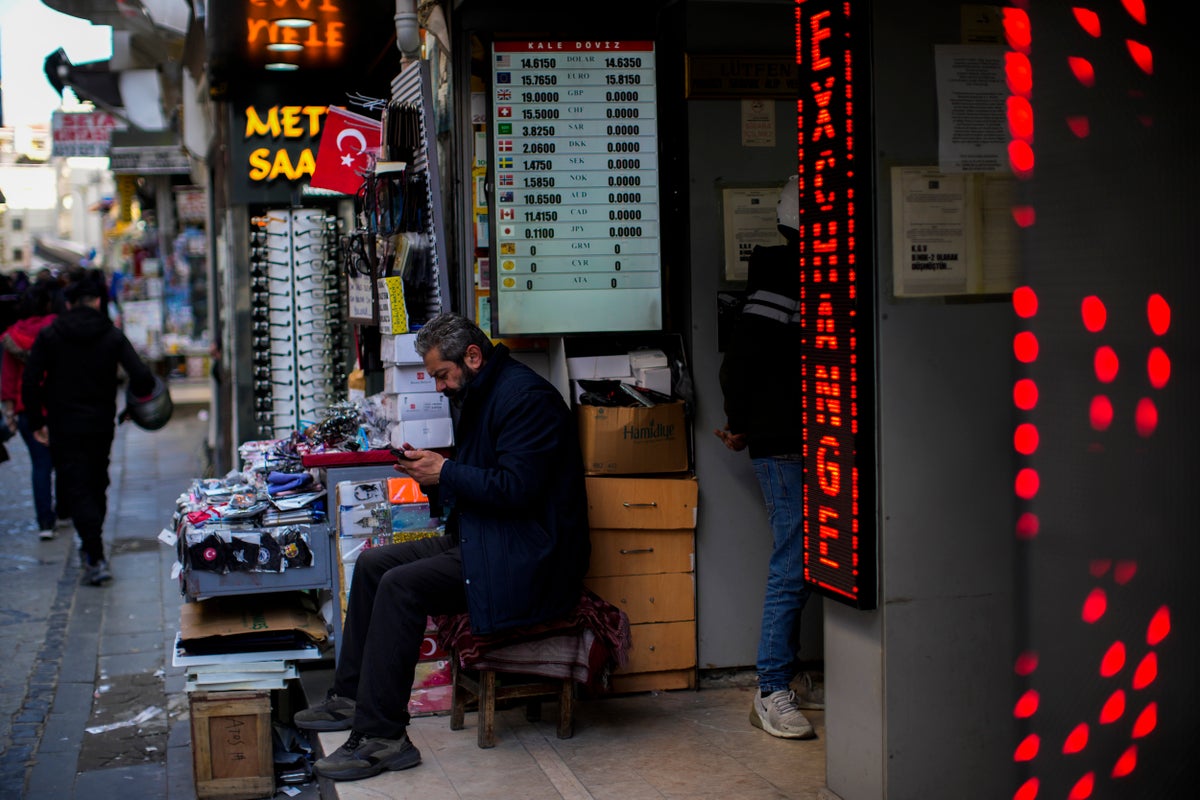
Turkey’s central bank on Thursday lowered its key interest rate despite inflation surging to nearly 80% and making it difficult for people to buy what they need, falling in line with the unorthodox economic views of the country's president.
In a statement following a monetary policy committee meeting, the bank said it decided to reduce the policy rate from 14% to 13%.
President Recep Tayyip Erdogan has pressured the bank into lowering borrowing costs in a bid to boost economic growth, investment and exports, insisting that interest rate hikes cause inflation. That contradicts established economic thinking, with rate increases the traditional tool to target inflation.
Central banks worldwide are raising interest rates as rising food and energy prices drive inflation to decades-high levels. Even then, inflation figures in the U.S. of 8.5%, the United Kingdom of 10.1% and the 19-country euro area of 8.9% come nowhere close to Turkey's eye-popping rate of nearly 80%, with skyrocketing food, housing and energy prices hitting people hard.
Turkey's central bank made a series of interest rate cuts last year despite high inflation, dropping rates by 5 percentage points before pausing in January. The cuts triggered a currency crisis and further fueled rising consumer prices, while Russia’s invasion of Ukraine and soaring energy costs aggravated the situation.
The Turkish lira weakened by nearly 1% against the dollar shortly after Thursday's central bank decision.
Erdogan, who is visiting Ukraine on Thursday for the first time since the war started, recently defended his policy to lower interest rates, insisting that it had helped save 10 million jobs. He has promised to lower inflation, asking for the public to show patience.







